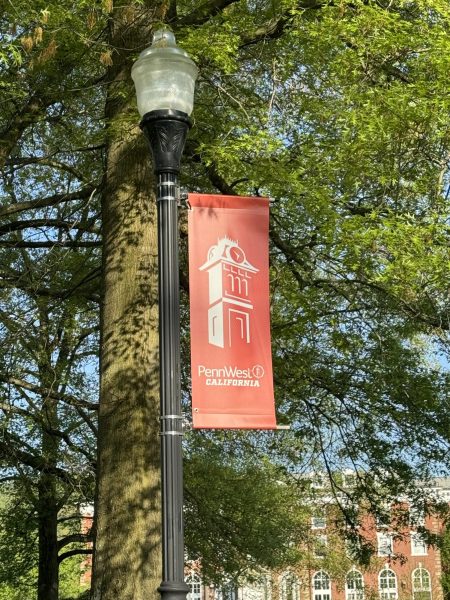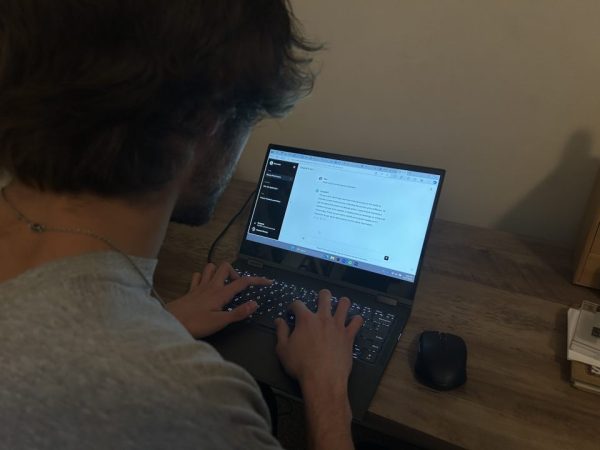“Why I didn’t report it”
National crime victimization survey finds that only 230 out of every 1,000 sexual assaults are reported to police; three out of four go unreported.
One night, during the Fall semester of 2015, Madison Smith, freshman at California University of Pennsylvania, along with two classmates, headed off campus to a party. (Smith’s name has been changed to protect her privacy)
“It was my eighteenth birthday and I wanted to celebrate,” Smith said.
A woman she didn’t know made small talk with her and offered her a glass of wine. Smith happily accepted the drink. Not long after finishing the drink, she began to feel sick.
“I remember not being able to feel my legs or arms. I was paralyzed,” Smith said.
She remembers being carried to the upstairs of the house by a man she vaguely knew from campus.
“He laid me on a bed and removed my clothes and I couldn’t move my limbs to try to stop him. I realized that my drink must have been laced with a drug,” she said.
While the man was assaulting her, one of her friends knocked on the bedroom door. Her attacker ran from the room. Smith’s friend helped her put her clothes back on. Afraid that the perpetrator would blackmail her, she never reported her attack.
Three rapes were reported in 2015 by the University, according to the Annual Crime Statistics Security Report, commonly known as the Clery Report. Smith, however, knows those numbers are not accurate because there are many others, like her, who kept silent about their sexual assault.
Although the 2018 Clery Report, which was released in October, indicates the number of rapes, stalking and dating violence crimes have decreased since 2016, many students, including Smith, say the findings are not correct.
“It’s not just me. Many of my friends have been assaulted and none of them has ever reported it to the police for reasons based on fear,” Smith said.
Edward McSheffery, chief of the California University of Pennsylvania’s police department, said the findings of the most recent Clery Report are encouraging but he has concerns.
“Reports on sex crimes can only reflect those that are reported. Sexual assault crimes frequently go unreported for a variety of reasons, such as fear of retaliation and misplaced shame and embarrassment,” McSheffery said.
The United States Department of Justice 2017 National Crime Victimization Survey found that only 230 out of every 1,000 sexual assaults are reported to police. That means three out of four go unreported.
According to a Justice department bulletin, “Criminal Victimization, 2016” cited victims do not report due to fear of reprisal or getting the offender in trouble, believing that police would not or could not do anything to help, and believing the crime to be a personal issue or too trivial to report. These reasons were similar to those stopping Smith from reporting her attacker.
“I knew people that he knew, and I couldn’t remember every detail of the incident. I didn’t want trouble because I was new on campus,” Smith said.
Nancy Skobel, director of the End-Violence Center at California University of Pennsylvania, added that the low numbers reported could also be due to the Clery Report covering crimes committed on the main campus and its off-campus residential apartments, Vulcan Village. She said if a student reports an assault off -campus, it does not appear in the Clery Report.
Skobel, however, said that whether a student chooses to report a sexual assault or not, the University’s End-Violence Center on campus will provide medical accompaniment, counseling and anonymity.
“Our goal is to support victims in whatever they decide to do, and if that means doing nothing, that means doing nothing,” she said.
Students can also turn to residential hall directors or community assistants.
Shawn McCoy, 2014 graduate of the University and Residence Hall Director, said he has had three incidents of accusations of sexual assault since the start of his employment in May 2016.
“The accusations that occurred were handled well by the University. Both the accused and the accuser were treated equally and, as far as I know, have been resolved,” McCoy said.
Ayla Larick, a senior at the University, said women are still afraid to report the crimes.
“I know several women who are students at the University who have been sexually assaulted but never reported it. I understand why they didn’t, but I have noticed more people willing to discuss it on campus recently,” Larick said.
Although she struggled for a long time over the assault in her freshman year, Smith feels it made her want to help people. She has devoted much of her free time to bringing sexual violence awareness to the forefront at the University.
Besides volunteering her time at Cal U’s Women’s Center and participating in the Vagina Monologues, Smith recently has begun developing a website for victims of sexual assault to talk about their experiences.
“The most important thing I’ve learned is that I am not alone. These assaults happen every day,” she said.





Darlene zelinsky • Dec 13, 2018 at 1:41 am
This article was very informative and also very alarming. It’s a shame that not more attacks aren’t reported. Hopefully this article may change that.